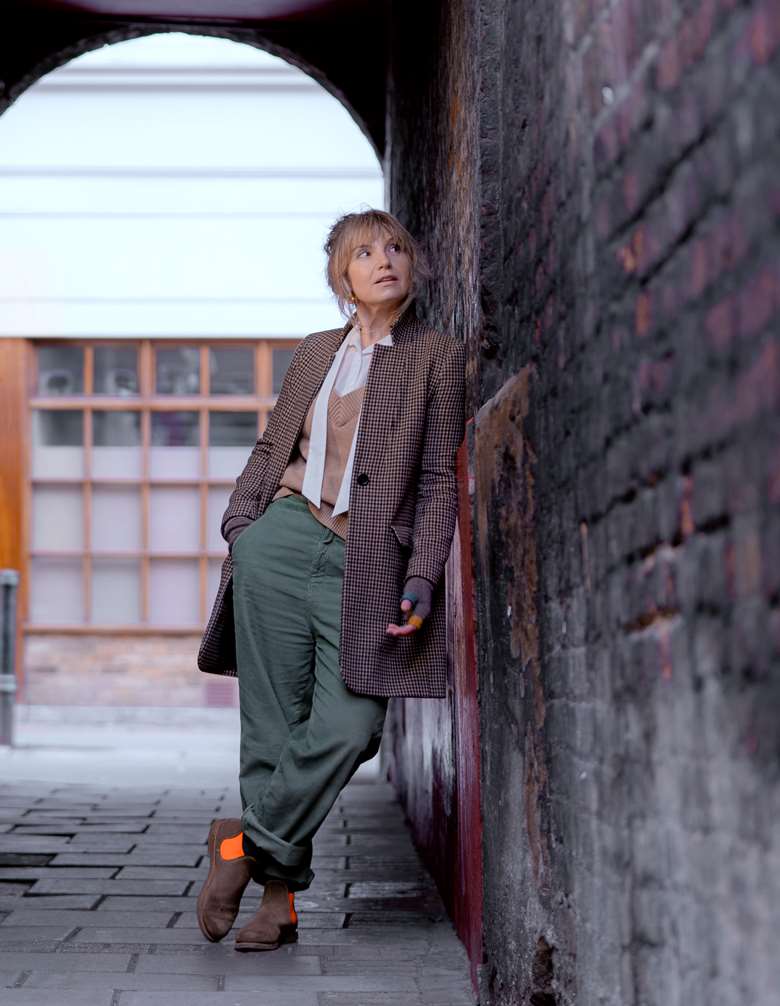Celebrating Schoenberg at 150
Claire Booth
Monday, September 23, 2024
Soprano Claire Booth has long championed the music of Arnold Schoenberg – now, 150 years after the composer's birth, ahead of the release of her critically acclaimed version of Pierrot lunaire, she explains why

Sven Arnstein
I’ve probably performed more Second Viennese School music than any other in my career, and I started down that route while still a student. In between the scratch performances of Bach cantatas and obscure Handel oratorios, I’d be performing Webern songs and Schoenberg’s Pierrot lunaire in Oxford’s Holywell Music Room. Indeed, my first concert with a proper pay cheque featured Berg’s Seven Early Songs, and so these composers have been with me since the beginning.
At music college, I feared my esoteric musical diet was outside the standard tastes of the staff, but I doggedly learned Webern alongside Schumann, and kept my ears open for any interesting opportunities I could find to collaborate with like-minded musicians. A chance to work with Pierre Boulez at the inaugural Lucerne Festival Academy meant that an early performance of Pierrot lunaire – that seminal work for sprechstimme – was conducted by the titan of 20th-century music himself. Famously noted for his incredible accuracy and minimalist approach, I asked him how I might go about navigating the famous ‘sing/speech’ style; his reply told me everything, 'you sing a bit, you speak a bit': basically, get on with it. At once, the aura was dispelled, and once I’d learned the notes, I felt the permission to interpret it my way.
While still at college, I was already working professionally with the London Sinfonietta, both in Europe and the US, and this led to invitations from other chamber orchestras and ensembles. Unlike now, Schoenberg was often on the programme. I know how lucky I’ve been to have had such a fulsome relationship with such ensembles, and the conductors they worked with. Not only are they excellent musicians, but for a singer it’s such good grounding: aside from the vocal component of any programme, you get exposed to lots of different types of music. Schoenberg could become just another composer, rather than something to be feared.
That’s not to say Schoenberg isn’t hard to learn – it’s just not really harder than anything else. Think how much rehearsal you put into singing Mozart’s Dove sono if you really want to do it justice. My first performance of Schoenberg's second String Quartet, which ends with a vocal movement, was with the Chilingirian Quartet in Italy. Having heard the piece conducted by Simon Rattle at the Festival Hall in the orchestral version, I blithely waltzed into my rehearsal feeling I knew everything needed. However, working without a conductor, and attempting to clock into the intangible rhythms of a string quartet was a very humbling experience, as I lurched from wrong note to wrong rhythm to wrong page! I got through the concert, but never wanted to feel that unprepared again: and I’m very happy to lay those demons to rest in December of this year, when I’ll perform the work with the wonderful Ensemble 360, with whom I recorded Pierrot lunaire.
From that early performance with Pierre Boulez, Pierrot lunaire has become something of a calling card. However, the real discovery of the past few years has been getting to know Schoenberg’s song catalogue. I’d always known he’d written a series of cabaret songs, operas, his mono drama Erwartung and of course the massively romantic Gurre-Lieder, but researching his songs for a retrospective CD entitled Expressionist Music was a revelation. His song output ranges from high romantic to sparse modernism, from operatic scenas to folk tales, naughty cabaret vignettes to traditional pastoral themes. Listening to these songs, the idea of Schoenberg as somehow dropping a bomb on traditional musical forms is redundant. These songs, as indeed with so much of his music, are so redolent of Strauss and Mahler, not to mention Bach and Mozart. Trailblazer he may have been, but he was fully immersed in the musical, not to mention cultural language of the time – he wasn’t trying to obliterate it, but to engage with it. Here was a man who at one moment was at the centre of the Expressionist movement, friends with Kandinsky and Mueller, and at another we find him in America as George Gershwin’s tennis partner.


Pierrot Portraits marks the 150th anniversary of Schoenberg's birth
Whenever I perform his music, audiences engage with it too. Too many musicians and promotors seem to have made up their minds about Schoenberg, either that it’s too difficult to learn, a hard sell to punters, or even taking the Thomas Beecham line that 'I’ve never conducted any, but I believe I’ve stepped in some'. I absolutely disagree, and audiences who are curious enough to discover his music consistently tell me they are blown away by the musicality, inventiveness and frankly the beauty of Schoenberg’s soundworld. Me too.
Claire Booth’s new album Pierrot Portraits is released on Onyx Classics on 27 September